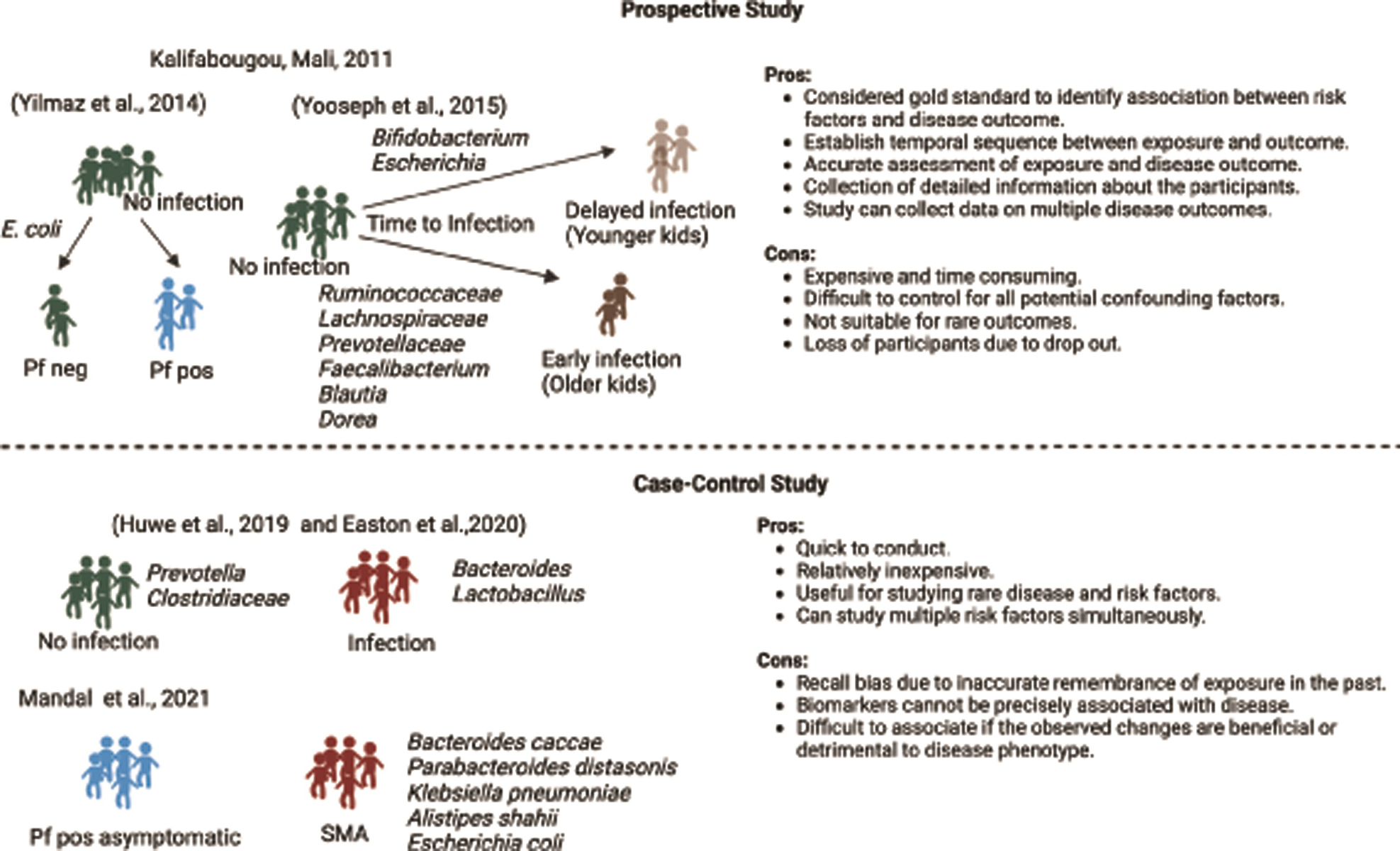💡 Malaria, a globally significant infectious disease, is primarily transmitted through 𝘗𝘭𝘢𝘴𝘮𝘰𝘥𝘪𝘶𝘮-infected Anopheles mosquitoes.
This review provides a comprehensive overview of the recent advances concerning the impact of gut microbiota composition on malaria severity and the reciprocal effects of malaria infection on gut microbiota in mammalian hosts.
📌 Additionally, the review explores mechanistic insights into interactions between gut microbiota and host immunity, potentially modulating malaria severity. Finally, various approaches to modulate gut microbiota composition are discussed, with the aim of propelling the malaria-gut microbiome research field forward.
📍 Key Findings:
📌 Anti-α-gal Antibodies and Malaria Protection:
Anti-α-gal antibodies, induced by α-gal expressing bacteria within the gut microbiota, have been associated with protection against 𝘗𝘭𝘢𝘴𝘮𝘰𝘥𝘪𝘶𝘮 sporozoite infection. These antibodies confer protection primarily during the pre-erythrocytic stages of 𝘗𝘭𝘢𝘴𝘮𝘰𝘥𝘪𝘶𝘮 infection, potentially impacting malaria severity.
📌 Age-Dependent Gut Microbiota and Malaria Susceptibility:
Studies reveal age-dependent variations in gut microbiota composition that influence susceptibility to 𝘗. 𝘧𝘢𝘭𝘤𝘪𝘱𝘢𝘳𝘶𝘮 infection. Younger children with specific gut microbiota profiles exhibit delayed onset of 𝘗. 𝘧𝘢𝘭𝘤𝘪𝘱𝘢𝘳𝘶𝘮 infection compared to older children, potentially indicating a protective role of certain gut bacteria against malaria.
📌 Gut Microbiota Composition and Malaria Outcome:
Differential gut microbiota composition is observed between individuals infected with Plasmodium parasites and those who are not. Specific bacterial taxa, such as 𝘓𝘢𝘤𝘵𝘰𝘣𝘢𝘤𝘪𝘭𝘭𝘶𝘴 𝘢𝘯𝘥 𝘉𝘢𝘤𝘵𝘦𝘳𝘰𝘪𝘥𝘦𝘴, show associations with 𝘗𝘭𝘢𝘴𝘮𝘰𝘥𝘪𝘶𝘮 infection and parasitemia levels, suggesting a potential link between gut microbiota and malaria outcomes.
📌 Gut Microbiota as Predictors of Malaria Severity:
Gut microbiota composition has been identified as a potential predictor of severe malarial outcomes, including severe malarial anemia (SMA). Distinct bacterial taxa, including 𝘌𝘴𝘤𝘩𝘦𝘳𝘪𝘤𝘩𝘪𝘢 𝘤𝘰𝘭𝘪 𝘢𝘯𝘥 𝘒𝘭𝘦𝘣𝘴𝘪𝘦𝘭𝘭𝘢 𝘱𝘯𝘦𝘶𝘮𝘰𝘯𝘪𝘢𝘦, are associated with increased risk of SMA, emphasizing the role of gut microbiota in malaria severity.
🔴 Understanding the intricate interplay between gut microbiota and malaria severity holds promise for innovative approaches to mitigate the impact of malaria. Further research into the mechanisms underlying gut microbiota-mediated immunity to malaria and the development of strategies to modulate gut microbiota composition may pave the way for novel interventions in the fight against malaria.
Link to the article : https://bit.ly/3QhwqGP
